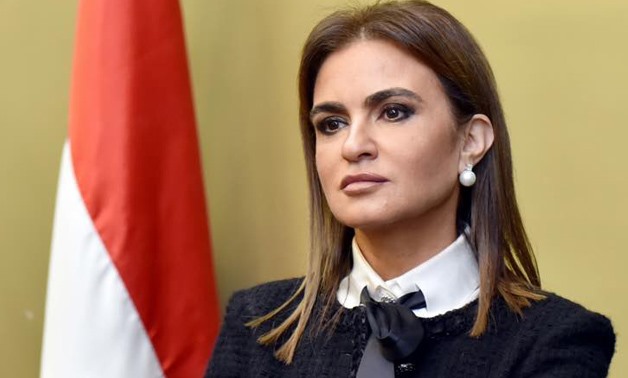
Minister of Investment and International Cooperation Sahar Nasr - Press Photo
CAIRO – 24 April 2017: Egypt is open for investment and the government is working on preparing the business environment and making sure that investors are encouraged to come, Minister of Investment and International Cooperation Sahar Nasr said Tuesday in a an interview with Bloomberg TV.
She said that the Egyptian government is working on reforming the legal and regulatory climate, such as putting forward a new investment and bankruptcy laws and the amendment of the companies’ laws, in order to eliminate bureaucracy and other challenges that the private sector had concerns about.
The interview came on sidelines of Nasr’s participation in the Spring Meetings of the World Bank Group and International Monetary Fund (IMF) held in Washington D.C. this week.
“We are moving very fast because we know this time is sensitive; the parliament is currently discussing the investment law which has been finalized at the economic committee and will be moved to the general assembly very soon. Other laws are in the pipeline,” Nasr followed.
When asked about the most attractive sectors for investments in Egypt, Nasr said that the government is focusing on sectors that will create jobs in the coming period as generating jobs are a priority for Egypt.
“We are focusing on the energy sector where massive reforms have been taken place. In the renewable energy, we are finalizing a feed-in tariff program with the International Finance Corporation and European Bank for Reconstruction and Development,” Nasr said.
The government will also focus on the industry sector, with a limelight on lagging regions like Upper Egypt, which has been negatively affected by declining tourism, she said, adding that tourism has been picking up lately.
Nasr expects to sign the third tranche of the $3billion World Bank (WB) loan within four months.
“Yesterday, I had a meeting with WB’s managing director and vice president and they affirmed the third tranche is on its way,” Nasr said.
In March, Egypt received the second tranche of the loan, worth $1billion.
” The first two tranches have been released based on a reform program that is homegrown, a program that has been prepared not just by the government, but through extensive consultations with people, stakeholders, the civil society, private sector, in addition to being discussed extensively at the parliament,” Nasr said.
Egypt pressed ahead with an economic reform program in 2014, to curb a gaping budget deficit, which includes subsidy cuts and introduction of new taxes such as the Value Added Tax (VAT).

Comments
Leave a Comment